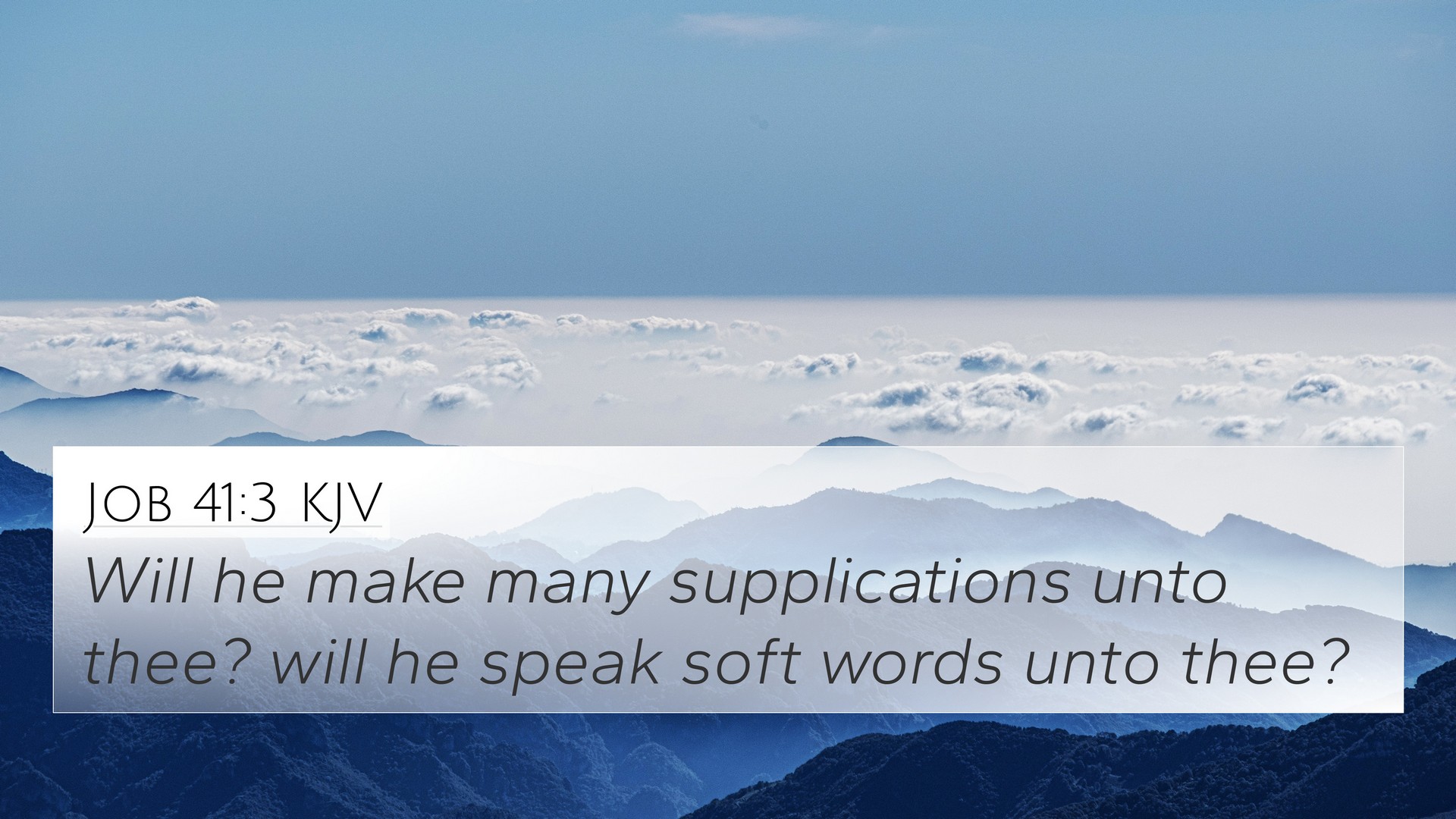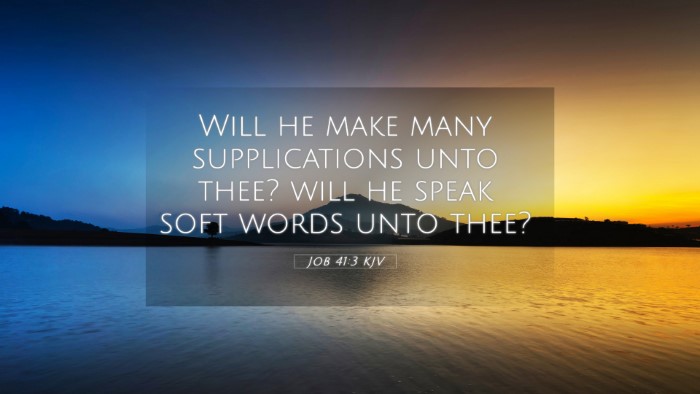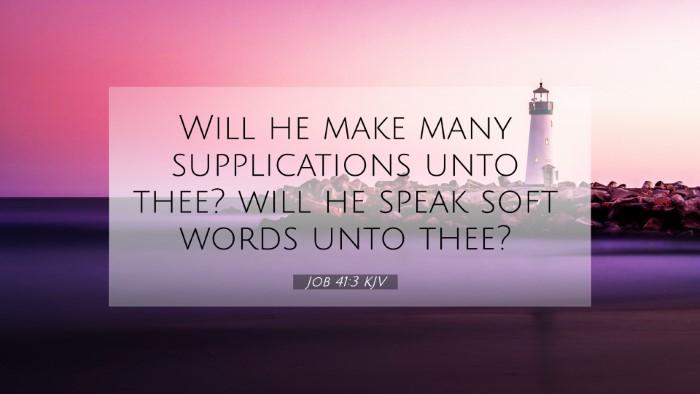Understanding Job 41:3
Job 41:3 states, “Will he make many supplications unto thee? will he speak soft words unto thee?” This verse is part of a larger discourse where God describes the power and majesty of the creature known as Leviathan, often interpreted as a representation of chaos and formidable evil.
Summary of Biblical Commentary
When examining this verse through the lens of public domain commentaries, we find insightful reflections on its implications:
- Matthew Henry’s Commentary: Henry emphasizes the awe-inspiring nature of God's creation, specifically addressing humanity's inability to control or tame powerful beings like Leviathan. He suggests that the rhetorical questions posed highlight the creature's independence and instills humility in the reader.
- Albert Barnes’ Notes on the Bible: Barnes focuses on the metaphorical significance of Leviathan in relation to God's sovereignty. He interprets the questions as tantamount to God asserting that no negotiations or soft approaches will sway such a mighty and untamable creature, thus illustrating God’s unmatched authority.
- Adam Clarke’s Commentary: Clarke argues that the verse challenges human arrogance by contrasting divine power with human limitations. He elaborates on the notion that Leviathan cannot be subdued by gentle words, which reflects the futility of relying on human strategies to confront divine matters.
Key Themes and Connections
This verse can be analyzed through various thematic connections, illustrating both its standalone significance and its relationship to other scripture:
- The Majesty of God: Job 41:3 emphasizes the grandeur of God’s creations, paralleling verses such as Psalm 104:26 which also mentions formidable sea creatures under God's dominion.
- Human Limitations: The discussions in this verse resonate with Isaiah 40:18, where the prophet contemplates what can be akin to God and highlights human incapacity to comprehend divine wisdom.
- God's Sovereignty: Similar themes can be explored in Proverbs 21:30, where the futility of human counsel against God’s purpose is underscored.
- Chaos and Order: The monster Leviathan symbolizes chaos and is likened to the chaos portrayed in Genesis 1:2, where the earth was formless and empty before God’s creation established order.
- Spiritual Warfare: The imagery of Leviathan can be cross-referenced with Ephesians 6:12, where the struggle against spiritual forces is articulated, suggesting that understanding such entities is crucial for comprehending spiritual warfare.
- The Power of Speech: The question of whether Leviathan would speak soft words is similarly reflected in Proverbs 18:21, emphasizing the power of words in creating either destruction or life.
- Fear of God: The overall theme of fearing God is prevalent throughout Job, connecting to Proverbs 1:7, where the fear of the Lord is the beginning of knowledge.
Cross-Referencing Related Verses
Understanding Job 41:3 leads us to a broader exploration of cross-references, enriching thematic studies:
- Psalm 74:14 - Describes God as the one who crushes Leviathan, reaffirming His power.
- Job 38:33 - Questions about the laws of the heavens manifesting God’s authority in creation.
- Revelation 13:1 - The beast parallels the chaos embodied in Leviathan, expanding its significance in eschatology.
- 2 Peter 2:16 - Discusses the nature of ungodly beings, connecting to Leviathan's untamable traits.
Conclusion
In conclusion, Job 41:3 illustrates the profound themes of divine power, human limitation, and the futility of subduing chaos through gentle persuasion. By cross-referencing various scriptures and considering theological commentaries, we enrich our understanding and appreciation of this significant biblical text.







